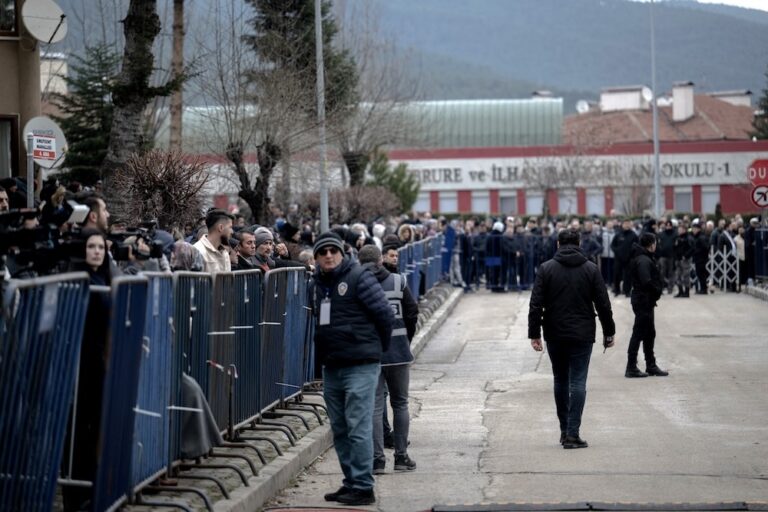(BIANET/IFEX) – The following is an abridged 24 July 2007 BIANET press release: General comment: freedom of press Soon, the international press freedom organisation RSF will rank the world’s countries according to their degree of freedom of the press. [. . .] In anticipation of this accounting, one is reminded of many events in Turkey […]
(BIANET/IFEX) – The following is an abridged 24 July 2007 BIANET press release:
General comment: freedom of press
Soon, the international press freedom organisation RSF will rank the world’s countries according to their degree of freedom of the press. [. . .] In anticipation of this accounting, one is reminded of many events in Turkey in 2007 which have moved it further down the ranks.
This year, Turkey celebrates the 99th anniversary of the abolishment of censorship, but in reality it has become difficult to even discuss the censorship and auto-censorship which operate at government level, in public institutions, and in commercial groups.
Censorship by the Prime Minister, companies and the public sector
Europe has interpreted the election success of the Justice and Development Party (AKP) as the result of “popular leadership”. Did they not understand that Erdogan’s court cases against dozens of journalists and caricaturists were part of a grand election campaign?
A company can claim millions of YTL in compensation because a news item has “reduced its commercial credibility”. For example, a company is now demanding 300,000 YTL from a local newspaper that covered complaints about workers’ rights.
Whenever the government uses the Savings Deposits Insurance Fund (TMSF) to seize control of media groups because of debts or “irregularities”, there are increased claims of interference in the publications or broadcasts, though the TMSF denies such interference.
Maltreatment of journalists
Let us make it clear how esteemed the journalism profession is in Turkey: Hrant Dink was killed; the annual number of attacks on journalists has reached two-digit numbers, and it has become commonplace for reporters to receive threats.
How will Turkey’s ranking with RSF be affected by the fact that dozens of journalists, writers and academics are forced to apply for police protection?
We have become used to journalists being tried in the same court rooms as drug dealers, armed robbers and the finance mafia; what is new is the pressure on journalists to reveal their sources . . .
The main opposition party has not deemed it necessary to lobby for freedom of expression and the press; can the government put an end to the hypocrisy with its cries for a continuation of EU reforms? At least we can send a stronger voice to the new Parliament.
Last year Turkey ranked 98th out of 168 countries, and it shared this position with Bhutan and the Ivory Coast.
This year, we may sink even lower.


